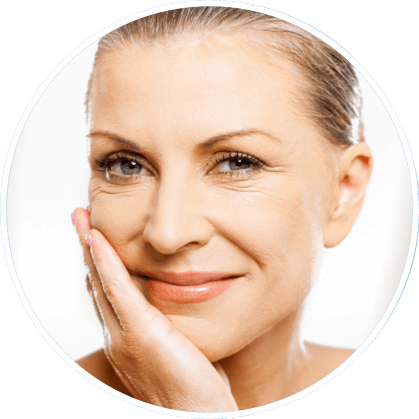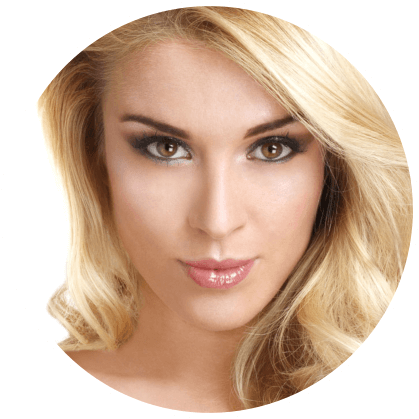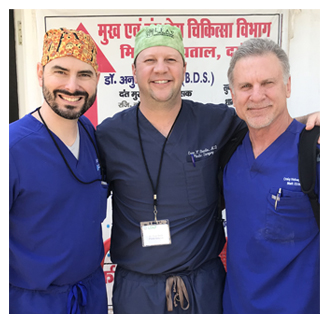FREQUENTLY ASKED QUESTIONS
WHAT IS PLASTIC SURGERY?
Contrary to what some people think, plastic surgery has nothing to do with plastic or artificial material. The word plastic comes from the Greek word plastikos, which means to form or to mold. While plastic surgery is most well known for its cosmetic enhancement component, it is a noble profession that has been instrumental in many advancements of medicine. Plastic surgery has been on the forefront of restoring lives in soldiers with devastating war injuries, restoring sense of confidence and wholeness to women who have undergone mastectomy for breast cancer, reattaching severed limbs, reconstructing infants and children with congenital facial deformities and restoring lives torn apart by traumatic injuries. The field of transplantation surgery started in plastic surgery. Plastic surgeon Joseph Murray was awarded the Nobel Prize in Medicine for helping bring to fruition the first kidney transplant. Cosmetic plastic surgery is about improving quality of life. In a board certified plastic surgeon, you have a physician who has trained rigorously for years to develop the skills and techniques necessary to achieve enhancements that are not possible without surgery. When these are done in the right way for the right reasons, it translates to improved quality of life. First, a life is to be preserved, and then it should be destined to thrive to the highest possible quality. Each individual is unique and that uniqueness is a gift from God.
WHAT IS PLASTIC SURGERY TO DR. HOBAR?
Dr. Hobar firmly believes that plastic surgery is all about improving your quality of life. You should feel empowered when you opt to alter an aspect of your physical appearance that has been holding you back either professionally, psychologically or physically.
We all choose to do certain things to groom ourselves and improve our appearance. We spend time and money on our appearance with items that are not permanent: clothing, hairstyling, skin care, and cosmetics to name a few. Obviously, these things enhance our outward appearance as well as possibly improve our self-esteem and self image. Cosmetic surgery is motivated by that same drive.
The key distinguishing factor is that results from cosmetic surgery have permanence. By choosing a well-qualified, board-certified cosmetic surgeon and communicating effectively with him to establish mutual goals, you can expect to receive permanent benefit from your investment. While plastic surgery will not stop the aging process, it does “set back the clock” and give you a new start point from which to progress, often serving as motivation to follow a healthier lifestyle path.
DO I NEED TO REPLACE MY BREAST IMPLANTS EVERY 10 TO 20 YEARS?
Absolutely not. If you don’t have a problem with your implants, there is no need to exchange them. They do not have a shelf life or expiration date. However, though the chance of an implant leaking in any given year is low – the rate is roughly a 1% chance for both silicone and saline implants – the incidence of them leaking over a life time is significant. It is therefore possible that over your lifetime, you will have a leak in one or both of your implants. Depending on the type of implant you have and the way the initial implants were placed, the surgery to remove the ruptured implant and replace it with a new one can vary widely. Dr. Hobar has a great deal of experience with implant exchange surgery and thus can tell you that a saline implant leak is usually much simpler to deal with – in terms of detection and implant exchange – than a silicone implant leak.
Dr. Hobar has the benefit of having performed well over a thousand breast augmentation surgeries over the course of his career and has followed many of his patients for many years.
WHY DO I HAVE TO QUIT SMOKING?
The nicotine in tobacco (of any kind) constricts the small blood vessels that supply your skin and underlying tissues with blood and other nutrients. The healing process is greatly impeded by any nicotine in the bloodstream because the surface vessels are not able to do the repair work that is required of them.
The risk to successful healing is so great that for many cosmetic surgeries, patients are not to be exposed to nicotine prior to surgery. Please let me or my staff know if you have any nicotine exposure through smoking, secondhand smoke, smokeless tobacco or nicotine replacement products.
WHY DO I NEED TO DISCONTINUE CERTAIN HERBS AND SUPPLEMENTS?
Many of the supplements and herbs available today are widely beneficial. In fact, Dr. Hobar encourages his patients to take Bromelain, an over the counter herbal supplement prior to surgery because it has shown to be efficacious in reducing swelling and bruising associated with the post-surgical period. But there are many supplements that are not a good idea if you are about to undergo surgery. Because there is little regulation over supplements, Dr. Hobar likes to be conservative in this arena and take the side of safety. Therefore, if research indicates that a certain supplement or herb might be counterproductive to the surgical or healing process, he asks that patients discontinue that product for a few weeks before and after surgery.






